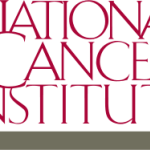- Industry: Government; Health care
- Number of terms: 6957
- Number of blossaries: 0
- Company Profile:
The National Cancer Institute (NCI) is part of the National Institutes of Health (NIH), which is one of 11 agencies that compose the Department of Health and Human Services (HHS). The NCI, established under the National Cancer Institute Act of 1937, is the Federal Government's principal agency for ...
A cell-based vaccine composed of irradiated tumor cells transduced with granulocyte-macrophage colony-stimulating factor (GM-CSF) and CD40-ligand (CD40L) genes. Upon administration, this vaccine may stimulate an anti-tumoral dendritic cell-mediated host immune response.
Industry:Pharmaceutical
A cell-based vaccine composed of autologous tumor cells fused with Epstein-Barr virus-transformed B-lymphoblastoid cells. Upon administration, this vaccine may stimulate a cytotoxic T cell response against tumor cells, resulting in tumor cell lysis.
Industry:Pharmaceutical
A cell-based vaccine composed of allogeneic dendritic cells pulsed ex-vivo with an autologous myeloma idiotype with potential antineoplastic activity. Upon administration, allogeneic dendritic cell-myeloma idiotype vaccine may stimulate the host immune system to mount a specific cytotoxic T-lymphocyte (CTL) response against myeloma cells, resulting in cell lysis.
Industry:Pharmaceutical
A cell-based vaccine composed of allogeneic dendritic cells (DC), pulsed with patient-specific non-Hodgkin's lymphoma idiotype (Id) determinants conjugated to keyhole limpet hemocyanin (KLH), with potential antitumor activity. Upon administration, this vaccine may stimulate the host immune system to mount a specific cytotoxic T-lymphocyte (CTL) response against Id-expressing lymphoma cells, resulting in tumor cell lysis.
Industry:Pharmaceutical
A cell-based cancer vaccine consisting of hybrid cells created by electrofusing autologous dendritic cells (DCs) and allogeneic lymphoma cells with potential immunostimulating and antitumor activities. Upon administration, autologous lymphoma cell/allogeneic dendritic cell electrofusion hybrid vaccine may stimulate the immune system to mount a specific cytotoxic T-lymphocyte (CTL) response against specific autologous lymphoma-associated antigens, resulting in lymphoma cell apoptosis.
Industry:Pharmaceutical
A cell-based cancer vaccine consisting of hybrid cells created by electrofusing autologous dendritic cells (DCs) and autologous lymphoma cells with potential immunostimulating and antitumor activities. Upon administration, autologous lymphoma cell/autologous dendritic cell electrofusion hybrid vaccine may stimulate the immune system to mount a specific cytotoxic T-lymphocyte (CTL) response against specific autologous lymphoma-associated antigens, resulting in lymphoma cell apoptosis.
Industry:Pharmaceutical
A cell-based cancer vaccine composed of autologous dendritic cells (DCs) transduced with a replication-deficient adenovirus vector encoding HER-2 with potential antineoplastic activity. Upon administration, adenovirus HER2-transduced autologous dendritic cell vaccine may stimulate a cytotoxic T lymphocyte (CTL) response against HER-2-positive tumor cells, which may result in tumor cell death and decreased tumor growth. HER-2, a tyrosine kinase receptor for epidermal growth factor (EGF) (also known as neu and ErbB2), is overexpressed by some breast, ovarian, and gastric cancers.
Industry:Pharmaceutical
A cell-based cancer vaccine consisting of autologous dendritic cells (DCs) pulsed with mesothelioma tumor lysate with potential immunostimulating and antineoplastic activities. Upon administration, mesothelioma tumor lysate-pulsed autologous dendritic cell vaccine may stimulate the host immune system to mount a specific cytotoxic T lymphocyte (CTL) response against mesothelioma tumor cells, resulting in tumor cell lysis.
Industry:Pharmaceutical
A cell-based cancer vaccine comprising autologous dendritic cells pulsed with four alpha-fetoprotein (AFP) peptides, with potential immunostimulatory and antineoplastic activities. Upon administration, AFP peptide-pulsed autologous dendritic cell vaccine may stimulate anti-tumoral cytotoxic T lymphocyte (CTL) and antibody responses against AFP-expressing cancer cells, resulting in tumor cell lysis. AFP is overexpressed in a variety of cancer cells.
Industry:Pharmaceutical
A cell-based cancer vaccine comprised of autologous dendritic cells pulsed with autologous T cell receptor gamma-chain alternate reading frame protein (TARP) peptide with potential immunostimulatory and antineoplastic activities. Upon intradermal administration, autologous TARP peptide-pulsed dendritic cell vaccine may stimulate anti-tumoral cytotoxic T lymphocyte (CTL) and antibody responses against TARP-expressing cancer cells, resulting in tumor cell lysis. The highly immunogenic nuclear protein TARP is commonly expressed in breast and prostate cancer cells.
Industry:Pharmaceutical
